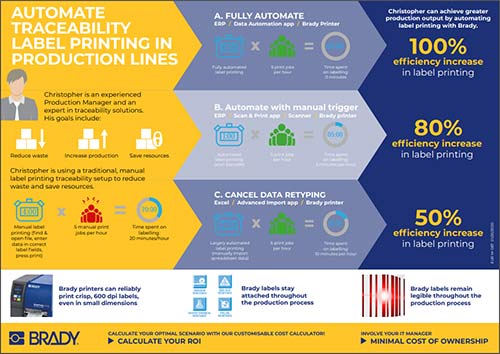Specialist 3PL logistics provider Europa Warehouse is celebrating the success of its Management Trainee programme, designed to give graduates an opportunity to fast-track a career in logistics.
A division of leading logistics provider Europa Worldwide Group, Europa Warehouse launched the programme in 2019, demonstrating its efforts to open doors for the next generation of talent.
Welcoming graduates looking to build a career in warehouse operations, the programme offers on the job training, giving individuals the skill set to quickly progress within the division.
Now, despite what has been a challenging year, Europa Warehouse is celebrating the growth and development of its team as its first trainee is promoted to Project Manager at Europa Warehouse.
With predictions that the ongoing growth in e-commerce could drive demand for 92 million sq ft of warehouse space across the UK by 2024, Europa Warehouse 3PL and logistics services are in high demand and going forward, the Management Trainee’s roles will be vital in sustaining growth and driving the business forward.
Europa Warehouse Logistics Director, Maria Torrent March comments: “Encouraging graduates to kick start a career in logistics and nurturing talent is a key focus for Europa Warehouse. The pandemic has shone a light on 3PL and logistics and sparked an interest for many young adults, and we are keen to offer opportunities and support.”
One of the programme’s recent success stories is Ram Odedra, who has been promoted to Project Manager at Europa Warehouse, Corby, before completing the two-year scheme. Ram found the opportunity on the Aston University graduate job portal and is now responsible for dealing with the new processes and contracts across Europa’s warehouses in Corby, Birmingham and Dartford.
Discussing why the Europa Warehouse Management Trainee programme appealed to him, Ram said: “The main factors that made me want to apply were the practical nature of the scheme and the chance to be able to work on projects across different areas and sites of the business. For example, I did my initial training at Minworth warehouse, then Northampton and finally Dartford. This meant that I could gain exposure to all aspects of Europa’s operations and in return, find the area that appealed most to my skill set.”
As part of the programme, a mentor is assigned to each Trainee to help guide development and ensure adequate support is provided.
Ram continues: “I am excited to be taking the next step in my career in logistics and progress within my new role. I would highly recommend the programme to anyone wanting to get involved in an operation where you are given live projects with real responsibility. Over the years, I have received an incredible amount of support and guidance working alongside Europa’s experienced professionals, as well as the flexibility to choose which direction I would like to take.”
Maria added: “Despite the challenges of Covid-19 and the increase in demand for warehouse space and 3PL services, we have ensured that employees continue to receive sufficient training and I am thrilled to see the success of Ram within our team. I look forward to watching others within the Europa team shine.”
Just last year, the division announced a recruitment drive for 120 new recruits following the launch of its 60m, state-of-the-art warehouse facility in Corby. The new site doubled Europa Warehouse’s logistics portfolio and has been constructed to a high-quality specification, including above-market standard 18 metre heights to facilitate three floors of mezzanines.
Europa Warehouse provides a range of value-added capabilities including e-commerce fulfilment, production services, inventory management, packing, labelling, special deliveries, final assembly, quality control and critical parts management.











